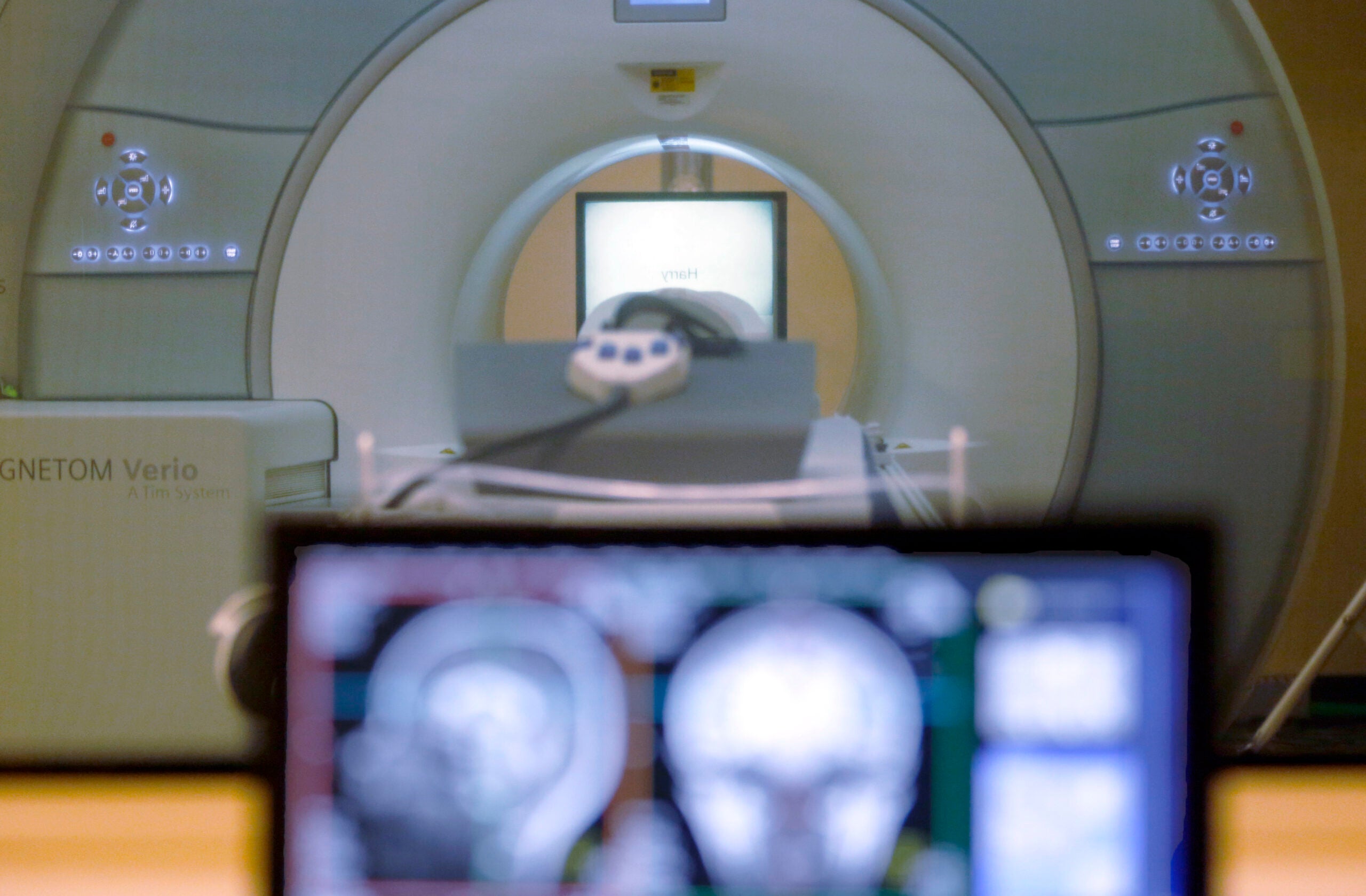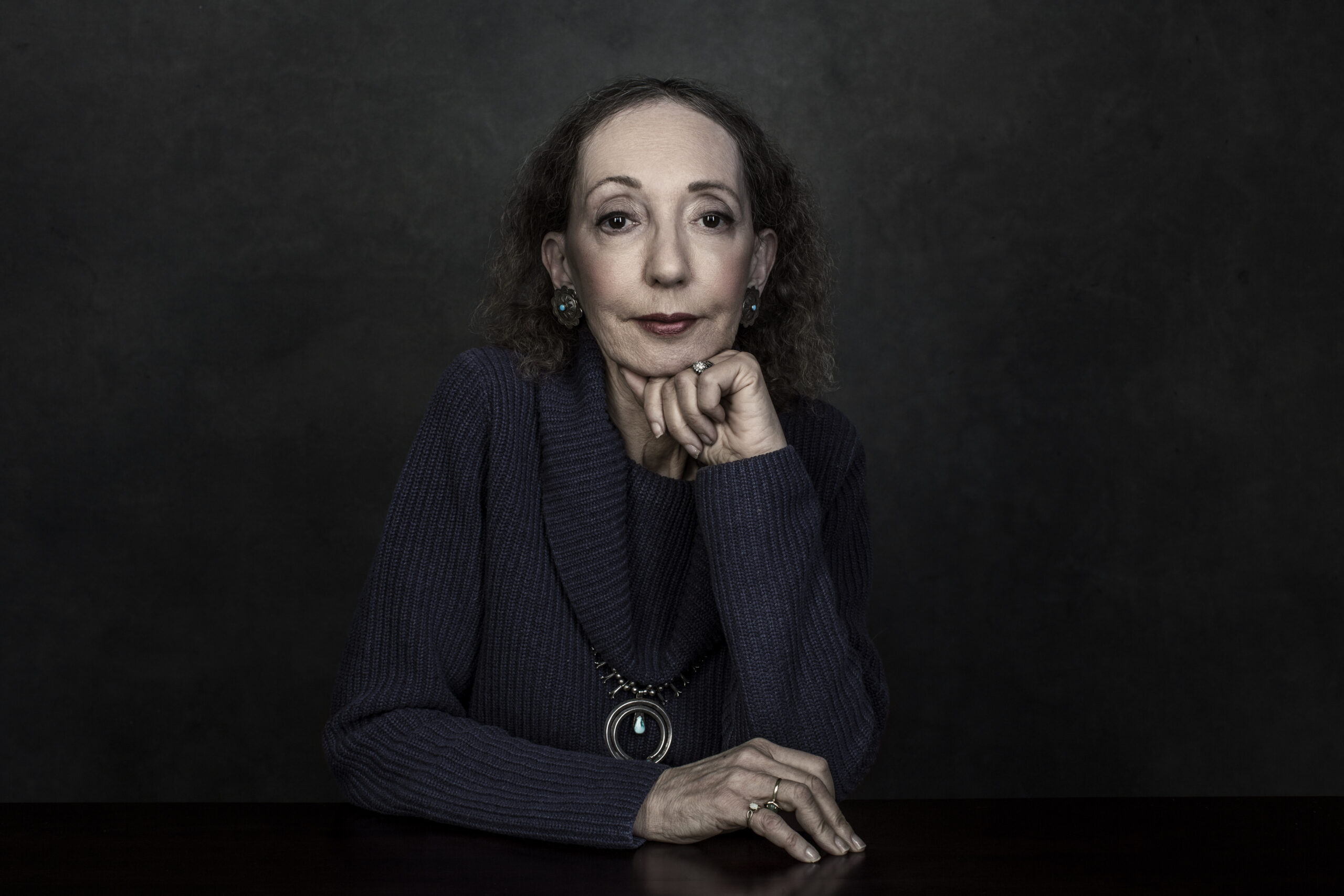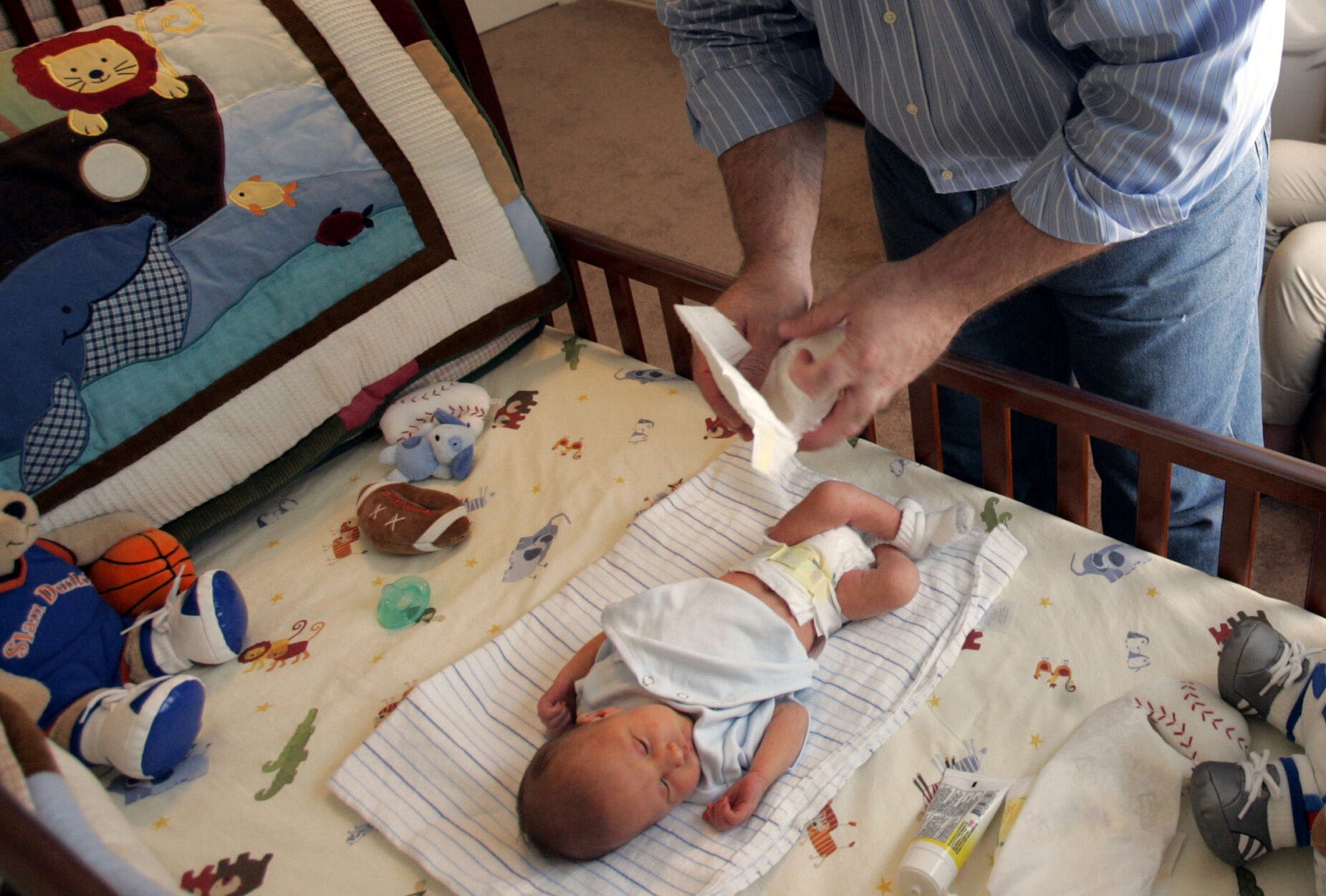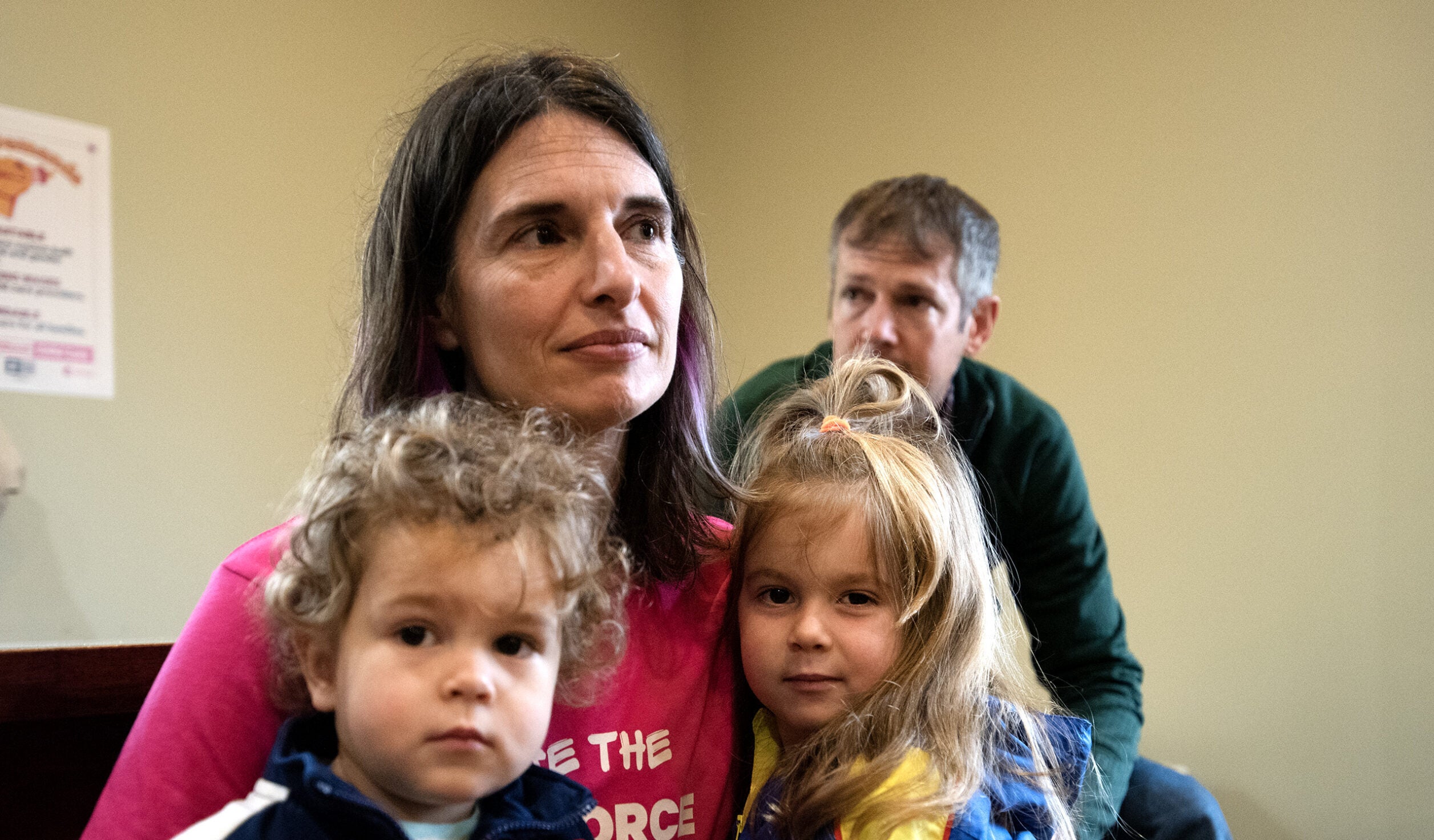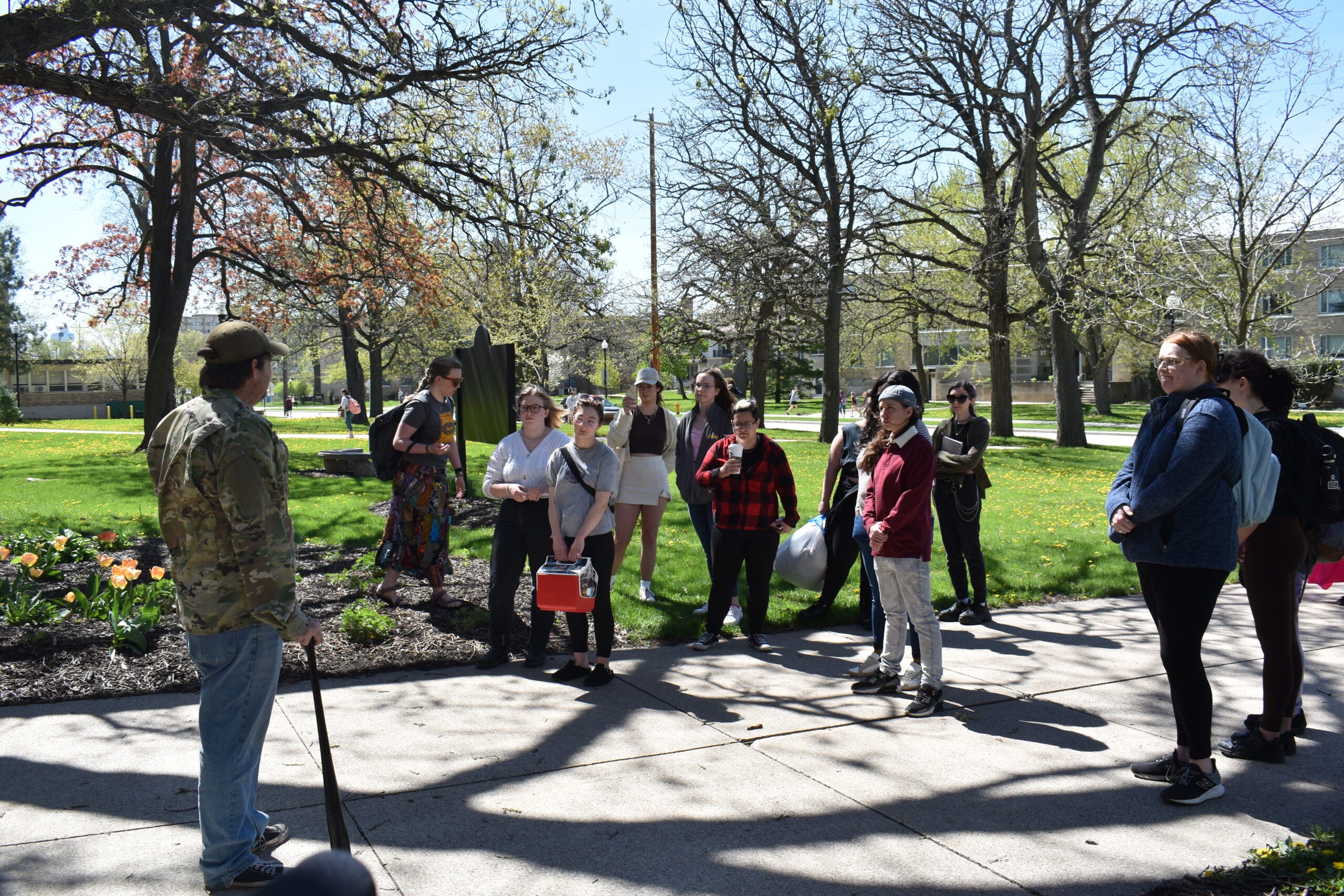Ellen Samuels has spent a lot of hours in loud, cramped MRI machines.
She said medical personnel would give her these “little headphones” to play music, but the sound of banging metal coils and vibrating electrical pulses all but muted that music.
So to pass the time, she would craft poems in her head. Without the ability to jot them down, she imagined haiku because the five-seven-five-syllable format was easier to remember.
Stay informed on the latest news
Sign up for WPR’s email newsletter.
She then expanded that practice to her other treatments — whether she was at an infusion center or at the hospital to receive different medications.
“It just really helped center me and give me a sense of control when things felt very out of control,” she said Monday on WPR’s “Central Time.”
Samuels, a University of Wisconsin-Madison professor in English and gender and women’s studies, has Ehlers-Danlos syndrome — a hereditary disorder of connective tissue that perhaps most noticeably causes hypermobility in joints.
“The ligaments that are supposed to hold your joints in place are weakened by this disorder,” she said. “I can dislocate my shoulder just turning over in bed.”
She has a new book out, “Hypermobilities,” which is a collection of short poems written through two years of medical treatments. She said it’s like “a memoir in haiku.”
READ MORE: A few haiku from Ellen Samuels’ new book are included below this story
Samuels said her diagnosis has been considered rare, although numbers have increased in recent years — suggesting it could have been under-diagnosed.
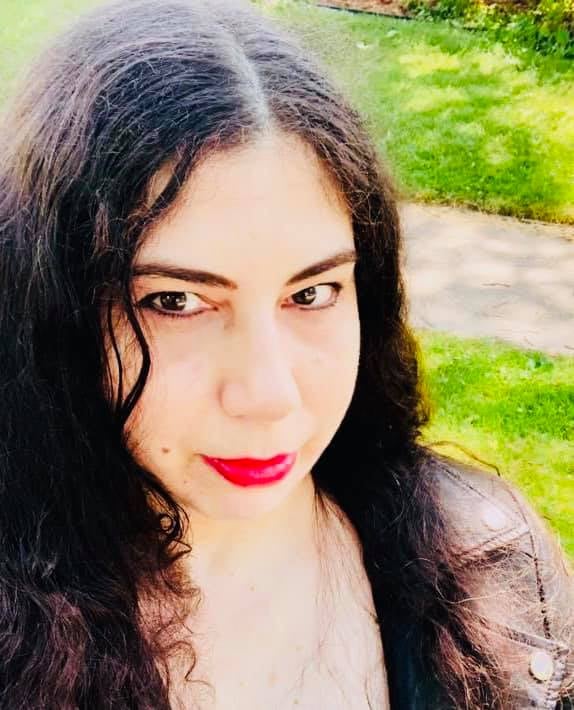
She said Ehlers-Danlos syndrome is a defect of collagen, “one of the building blocks of our bodies.” The syndrome can lead to subluxation, which is a partial dislocation.
In 2014, she received a diagnosis of a complication with her Ehlers-Danlos syndrome that found a dissection of one of the arteries going to her brain, she said. This brought on more emergency MRIs of her head and neck.
Then came the haiku.
She has published poetry earlier in her career, but it had been a while.
First it was just in a file on her computer, sometimes sharing a poem on social media. After 20 or 25 haiku, she said she realized her writing was more than just coping through the arduous treatments.
She was on her way to a book.
Samuels said she would encourage others in the disability community to write or be creative in a way that works for them.
She has spent the last few decades teaching. She remembers students who might start a semester with zero experience writing poetry and end the term by discovering “this rich, beautiful poetic voice they didn’t know was there.”
“I think writing is a gift, but it’s also a skill that can be learned,” she said. “Everyone can do it.”
Samuels is a founding member of the UW Disability Studies Initiative, which is a program that studies the economic, social, cultural and political elements on the topic. The program partners with disability communities statewide to “transform public understandings,” according to the program’s website.
Samuels said she and others with chronic illnesses or disabilities often feel this “bind” that they don’t want pity, but they also don’t want to pretend that everything is fine.
Being honest when asked “how are you” can bring some pity, she said, furthering the idea that “healthy” people are in a category of their own, distinguishable from those with disabilities.
It might seem uplifting to see someone in Samuels’ position and think “I shouldn’t complain.” But she said that can be “profoundly dehumanizing” because “it suggests that we are not the same kind of people.”
“It was true when I wrote the book pre-COVID-19 pandemic, but certainly during the pandemic it’s becoming clear that we are all vulnerable,” she said. “We are all physically, mentally and emotionally interdependent, linked and vulnerable people who cannot divide ourselves into the worlds so easily of who is healthy and who is not.”
But there are still some thoughts and feelings that some can only truly reach by going through an experience themselves. Broadly speaking, the disability community “sustained me through my experience, both before and after diagnosis,” Samuels said.
She said other writers sharing their experiences has been greatly useful for her.
“You are not alone. It’s tremendously isolating to have any kind of disability, to have any kind of chronic illness. You often feel very cut off from the world,” she said. “I see all my writing as different ways to connect with that community and say, ‘You’re not alone.’“
Below are a few haiku included in Ellen Samuels’ book, “Hypermobilities.”
Hypermobility
No one is supposed
to bend that far. No one knows
why you don’t just break.
Ankle Sprain, While Sleeping
Warm swell of pain, foot-
knuckle bruising. What dance did
you dream and forget?
Displacement of the First Rib
I am the garden
Eve never took back. Fist with-
in the bone, rising.
Wisconsin Public Radio, © Copyright 2025, Board of Regents of the University of Wisconsin System and Wisconsin Educational Communications Board.
